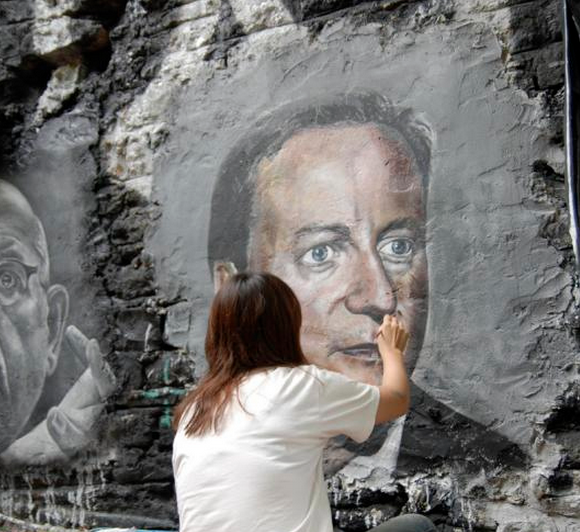Britain’s Prime Minister David Cameron, in what looks like a slippery manoeuvre to draw attention away from his failures in Brussels, is now pretending he secured concessions from the same EU leaders who voted him down 26-2 in his opposition to Jean Claude Juncker as next president of the European Commission.
In an article written for the Daily Telegraph the prime minister points to a few words of goodwill the European Council added to their official conclusions at the insistence of Cameron and his diplomats and insists they mean “is moving in the right direction.”
In particular, he says “We also negotiated, with support from our allies, explicit recognition – for the first time – that the concerns of the United Kingdom will need to be addressed.”
This is the line in the conclusions to which he refers:
“The UK raised some concerns related to the future development of the EU. These concerns will need to be addressed.”
Yet both Cameron’s comment on the line, and the line itself, are carefully constructed to mix the obvious with nothing at all. Long-time EU observers know the phrase “to be addressed” has no more meaning in Brussels than a negotiator saying, “I note what you say.” There is in fact no commitment and no concession in the line.
Then Cameron takes this paragraph from the conclusions:
“..the European Council noted that the concept of ever closer union allows for different paths of integration for different countries, allowing those that want to deepen integration to move ahead, while respecting the wish of those who do not want to deepen any further.”
Cameron spins that to mean: “Importantly, we broke new ground on the issue of ‘ever closer union,’ making clear that the wish of countries like Britain – who do not want to deepen integration – must be respected.”
In fact, no new ground was broken by this paragraph, and Cameron does not know – or does not tell his British readers – that “respected” means nothing at all to the EU elite. Following the referenda in the Netherlands, France and Ireland that rejected EU treaties, the EU elite immediately said they would “respect” the votes – then they set about forcing the member states to reverse the referenda results.
In fact this paragraph from the council conclusions confirms that “deeper integration” – known in treaty law as “ever closer union” — is the path for all member states, and it is only the rate of integration can be variable.
This is far from new, it reflects a long-standing policy of the EU called “enhanced cooperation.”
The European Commission explains that enhanced cooperation “allows those countries that want to work more closely together to do so, while respecting the legal framework of the Union. The Member States concerned can thus move forward at different speeds and/or towards different goals.”
One example of the established EU policy of “different paths to integration” is the passport-free area called the Schengen Zone. The most spectacular example is the eurozone.
At least nine countries must be involved in “enhanced cooperation,” which needs permission from the European Council. The method was established by the Maastricht Treaty signed by Conservative Prime Minister John Major in 1992.
Areas which can be covered by enhanced cooperation have been increased by successive EU treaties, among them the Treaty of Amsterdam signed in 1997 by Labour Prime Minister Tony Blair, the Treaty of Nice signed in 2001 also by Blair and the Lisbon Treaty signed in 2007 by Labour Prime Minister Gordon Brown.
Yet in his newspaper article today, the long-standing EU practice of “enhanced cooperation” is either unknown to Cameron, or he deliberately ignores so that he can present the council’s dull statement of this policy as “breaking new ground.”
Cameron himself does not actually claim this line delivers anything at all – but he phrases his article, and assumes a tone, of accomplishment.
In other words, he has used words in such a way in the hope that he can encourage the British people to think he made progress last week in Brussels in repatriating powers to Britain. He didn’t. But he hasn’t actually lied, either. He has simply misled. Which some might say is more contemptible than an outright lie.

COMMENTS
Please let us know if you're having issues with commenting.